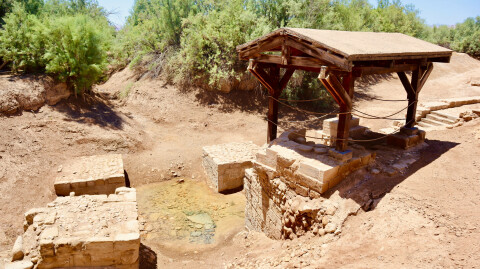TLDR: Please read below for some of my reflections on an excellent class I took with N.T. Wright at South Main Baptist Church last week. I hope you enjoy these comments.
I grew up at a time and in a culture that encouraged love of neighbors as a precondition for salvation. It was one of the things we were obliged to do so that one day we could leave this earth and go to a place called “heaven,” without the necessity of stopping at a place called “purgatory.” Theologian N. T. Wright believes that the questions, “How do we go to heaven?” and “How do we avoid purgatory?” are Medieval and not New Testament questions. When the authors of the New Testament were writing their Gospels and Epistles they were not concerned with the methods through which we leave this world and go to a place up in the sky. Their main question was about what it all meant. God has chosen to become human and to live among us, what does this mean for our relationship with God? What does this say about how we lead our lives? What does this mean for the gulf of separation that has existed between God and creation since Genesis 3? Etc. And then, with the resurrection of Jesus, there was another set of questions regarding New Creation, the Law, the Temple, reconciliation with God, Judean-Gentile relations, the incorporation of “the Other” into the story of Israel, etc.
When I was a child, going to heaven meant that I would get to enjoy the Divine Presence for eternity, without fear of damnation. Over the last twenty years, I have come to see God’s glory as the display of the Divine Presence dwelling through the Spirit in his creation. The point of the Church then is to show God’s great and gracious presence in the world and for the world in everything we do and say. Humans are the image bearers and the Divine Presence dwells in each of us, which means that we don’t have to wait until we get to heaven to experience the fullness of God. Wright calls the Church, “The small working model of God’s new creation.”[1] In and through the Church we can have a share in the life God desires for the new creation. This is possible because with the arrival of Christ the whole entire world became “God’s Holy Land.” The barrier that separated the sacred from the profane has been destroyed forever and this was God’s plan from the very beginning. As Wright states, “God’s plan is always to bring everything together in the Messiah as an advance of what God wants for the cosmos.”[2]
One of the things I admire in Wright is his ability to place the Apostle Paul deeply within his Jewish heritage, culture, and traditions. For Paul, the great narratives of Judaism are foundational to his telling and retelling of the Messiah’s story. Central to this heritage is the idea that God chooses to dwell with the chosen people in the Temple. God tabernacled the Divine Presence within a specific building to which Judeans could come to worship. The Temple then became the meeting place between humans and the Divine, a place of prayer, refreshment, rest, and encounter. At some point, at the fullness of time, God chose to tabernacle in a small human boy. God broke into our human plane personally, taking in flesh, and incarnating his Divine Presence in a young Judean maiden. After the birth, growth, earthly ministry, passion, and death of that incarnate Divine Presence, “Jesus’ resurrection fulfilled the reality of what Israel’s God wanted for the Temple. God’s true Temple has been built in Christ - And by the Spirit in those who are In-Christ.”[3] The most astonishing thing for Paul is that God had willed the inclusion of the Gentiles in this Temple story from the very beginning.
Wright affirms that what is true of the Temple is true of the Church -And by the Spirit of each of us. The Church is now the meeting place between God and humanity. But God does something significantly different in the New Temple, the Church. One of the strongest regulations of the old Temple was the exclusion of all none-Judeans. According to Wright, there was a sign on the wall that separated the court of the Gentiles from the Temple which read, “Gentiles not allowed under the penalty of death.” The meeting place between God and humanity was reserved exclusively for Judeans, creating two separate groups or tribes. This enmity endured throughout the first and second Temples, but Paul makes it very clear that in the body of the Church there is no longer Judean or Gentile. This is how Wright translates Ephesians 2: 12-16:
Well, once upon a time you were separated from the Messiah. You were detached from the community of Israel. You were foreigners to the covenants which contained the promise. There you were, in the world with no hope and no god! But now, in Messiah Jesus, you have been brought near in the Messiah’s blood -yes, you, who used to be a long way away! He is our peace, you see. He has made the two to be one. He has pulled down the barrier, the dividing wall, that turns us into enemies of each other. He has done this in his flesh, by abolishing the law with its commands and instructions. The point of doing all of this was to create, in him, one new human being out of the two, so making peace. God was reconciling both of us to himself in a single body, through the cross, by killing the enmity in him.
For Paul, the Church is now the new Temple where Christ dwells by the Spirit. Messiah has brought about an “end of enmity” between warring sides. The unity of the Church shows our new creation status before God: From two different types of humans, God has brought together one new being in the Messiah. “God’s promise of a new creation has become shockingly a reality, as God always said it would.” The Church is faithful to this “end of enmity,” and to this “new creation” that emanates from the Spirit in the Messiah, when we actively work for unity. Sitting at Main Baptist Church with over five-hundred people of most known Christian denominations, singing hymns, worshiping together, and learning from one of the world’s foremost experts on Paul, I saw a glimpse of this new creation: ACNA Anglicans seated side by side with Episcopalians, Baptists of the North and of the Southern Conferences enjoying the same hymns they sang as children, Methodists recently separated because of culture wars sharing the Gospel as brethren, Catholics and Orthodox pastors enjoying lunch with Protestants of all types, etc.
For three glorious days we sat together, joined by our mutual love of Scripture and our commitment to the Gospel of Jesus of Nazareth. This was a foretaste of what one day will be a reality: A united body in love with our Messiah, in community, together for the sake of the world.
Please pray with me that this might become a reality soon. Blessings,
Fr. Roman+
[1] N. T. Wright: Summer Intensive in Houston, June 9-12, 2024 (Ephesians: All the Fullness of God.)
[2] Ibid
[3] Ibid





